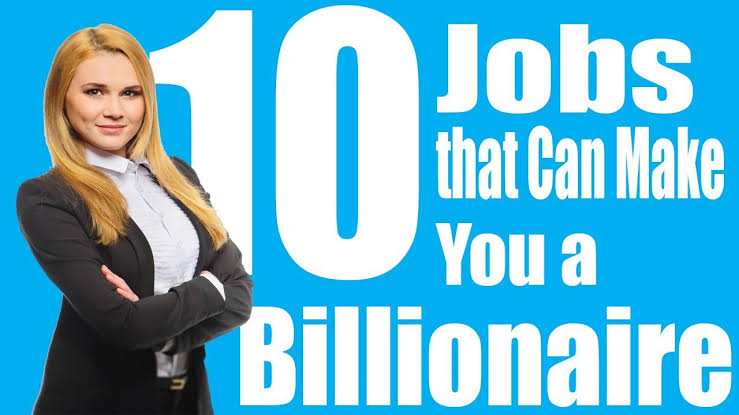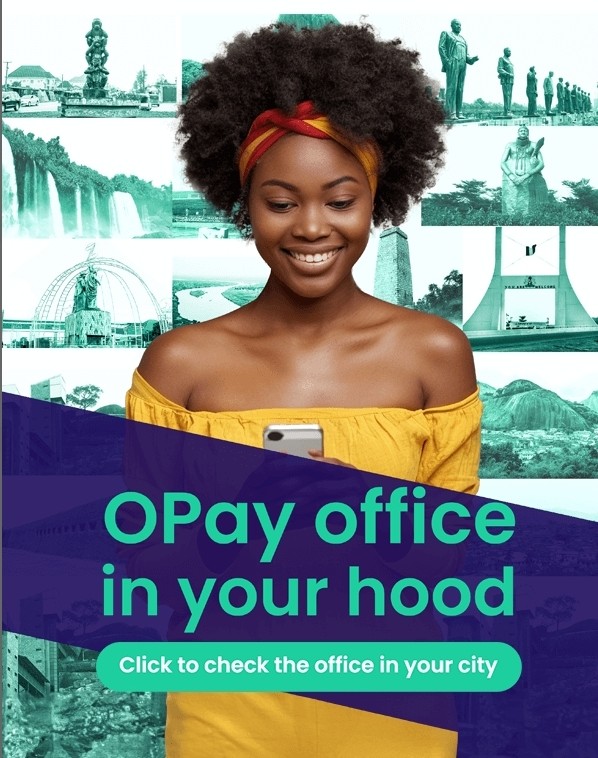Emeka Erem, the popularly Nigerian comedian, who is better known as Ajebo, has opened up about his life.
Without a doubt, Ajebo is so many things rolled into one. He’s a comedian par excellence, a former radio personality and a singer. Ajebo is best known for creating some of the funniest cartoon skits that have come out of Nigeria.
His House of Ajebo cartoon brand, which has been running for the past 13 years, has garnered over 1.9 million subscribers on YouTube and is still counting.
But unknown to many, Ajebo is also the brain and the voice behind the popular cartoon character and YouTube sensation, Tegwolo, Champion of Warri.
The Tegwolo character drew fame for his Warri-style pidgin English, known for mischief and getting into trouble, especially at the hands of his disciplinarian mother. In this encounter, the humour merchant recounts how he began his journey as a comedian and cartoon skit maker, revealing that he was a prayer point for his mother, being a stubborn child, a character he recreated in Tegwolo cartoon series. He also talks about going into children’s educational learning and entertainment as his next project.
Read on…
How have you been able to sustain the House of Ajebo?
I started the House of Ajebo in 2013, but I had a breakthrough in 2021. So, for eight years, I was just making the skits for the love of it. Any day I had money, I would create something and post online. It trended for almost a year after I posted my first video. It was after the lockdown that I started seeing light at the end of the tunnel. I was already giving up hope because I had no money again to continue to create content. After the lockdown, it was like this is the only thing I can do from home. There were no shows again. I started afresh and I became consistent with it. In one year, between 2020 and 2021, we moved from 120, 000 subscribers to one million subscribers. Meanwhile, I have been doing it since 2013. As a matter of fact, my first Tegwolo skit was created in 2016 but it was not consistent.
How did you manage to create the Tegwolo character as you are not from Warri?
You know how comedy became popular when everybody wanted to centre their comedy around Warri. Everybody wanted to speak Warri pidgin. But first of all, Tegwolo is my story. I was a prayer point for my mother because I was stubborn as a child.. I was the third child in our family, but I was that child that anything I watch I must replicate it. And I liked Jackie Chan a lot; so if I watched him kick somebody’s stomach in a movie, I would kick somebody’s stomach in school the next day. The fact that I did not jump off as Superman from a building was because I didn’t see a skyscraper to jump from. I was very stubborn but smart as a child. I liked to replicate what I watched in movies. So most of the things you see Tegwolo do are my personal stories. But to sell the skit at the time, it was easier to model it after a Warri character because they are a naturally stubborn set of people. As for his long head, I had a classmate we used to call bicycle seat head. Of course, I exaggerated it in the cartoon.
A lot of people love Tegwolo. Now, what the Tegwolo brand did for me was that it showed me that children really want to hear the African story. The boy is dressing like a street kid. He speaks pidgin fluently. He is called Tegwolo, Champion of Warri. So, he’s exporting our culture and we get a lot of feedback from ‘ajebota’ (spoilt) children in the UK, and the US. Nigerian parents in diaspora said this is the closest touch of home their children have because once their children start to watch it, their children start to speak a little bit of pidgin. So we want to let the world know that “House of Ajebo” is taking its place in the children’s space right now. We are about to launch a new brand which will hit the internet from the 1st of November. We have taken our place as number one in the animation space in Africa, so we want give something that the next four generations of African children will talk about. We are therefore delving into learning and entertainment. The numbers are there on the“House of Ajebo” and the great things we’ve accomplished about Ajebo being the king of cartoons in Africa as we do about 6 to 10 million views monthly on House of Ajebo. So we’re trying to create a background that will prepare the stage for the November 1st launch. We want people to meet the person behind the “House of Ajebo”.
You have achieved a lot without blowing your trumpet. Why are you coming out now?
With the advent of social media, anything you post on your page goes viral. Having experienced media and PR, I did not focus on my achievements. I was busy building the Tegwolo brand, but now, I am expanding the brand and on the 1st of November, I will be launching something new. It’s like we are going higher.
How many views do you garner and how does it translate to money?
I have a subscriber base of 1.9 million but what converts to money is actually watching the videos. It’s not just your subscribers, but the views. You can have fewer subscribers but have many people who just want to watch and go. What happened was, over the years, we snowballed into a proper animation company. So, I have a team of animators who reach out to Nigerians in diaspora. All I do is make sure that every month, at least four episodes must go up on YouTube. So, it’s a lot of work, it’s a lot of expenses but then, the show must go on. But what has happened now is that Tegwolo was created as a cartoon brand. It’s a cartoon series that children started latching on. Now we are saying there is a vacuum somewhere, children do not have enough African content. Don’t forget, he who pays the piper dictates the tune. If somebody is creating cartoons from abroad, they will do it according to their own mindset, their culture, their biases.
Do you know that cartoons have now started adopting modern-day family dynamics?
Yes, those foreign dynamics are now being infused. We can either keep quiet or do something. I have three daughters now; aged 4, 2 years and 8 months. So I’m actively involved in what they are watching. I’m like, okay, let me create something for this generation that they can grow with, that’s healthy and informative. When we were growing up, the only child star that I remember at that time was Benita Okojie. But for kids these days, there is nobody that they can look up to as a role model. That is where we come in. We are singing values, kindness, and happiness. You are beautiful the way you are, giving respect and love for family. It is what you expose to these children at this time that they grow up to manifest. So it was kind of a push for me to produce something that my children can relate with. And they are my first audience. We are addressing a lot of issues that can ruin the destinies of our children using Afrobeats music.
How do you create the characters for your cartoons?
I studied Mass Communication for my first and second degrees at the University of Nigeria, Nuskka. In my second year, I was already doing stand-up comedy but I wanted to be unique. That was the era when Basketmouth started doing skits. I told myself that I wanted to be able to do this. So I noted somewhere that I was going to crack jokes using animation. That was the beginning of my journey. While I was still in school, I also had the opportunity to work closely with AY and I met an animator. That was how I produced the first sets of my cartoon characters. I was the main character. But then after a while, I wanted to do something more unique and Tegwolo came into the picture in 2016. But right now, we are expanding to the point where we can be the Disney of Africa. That’s what we’re trying to do. There are several things that we have put out. We have worked on it.
As an animator, are you restricting yourself to YouTube?
We are not limiting ourselves, but for now, we are on YouTube. Back then, I worked at Rhythm FM, Awka. When I graduated from the UNN, and moved to Lagos, I worked at Naija FM for five years. So somehow, it was like I was taking advantage of the media. But now, I just thought this is the time to let the world know what I have been doing. After COVID, the digital space started to thrive. After COVID-19 lockdown, the character Tegwolo gained massive popularity. That was when we hit 1 million subscribers. As I am talking to you now, we are about to hit two million subscribers on YouTube. In 2021, we were number one on the top 10 list of breakout content creators of the year. In 2022, we are still on the top 10 list.
Where do you draw inspiration for your skits?
I have always been creative, I have always loved to tell stories. And basically, with my comedy background, I just wanted everything to be comedy. I resigned from radio in 2016 and became a full-time entrepreneur. So, right now my children are inspiring me. If you take your eyes away for a second, one advert with adult content might just pop up, so I have to monitor them all the time. So they are my biggest inspiration right now. They are my first audience and I look at them and I say I will give you enough content to keep you going. It’s time we let children be children. That’s my slogan, because we are forcing a ‘Buga’ on our children. These are songs that are for adults. Allow them to sing about what children should think about. I was one of the fortunate ones in my time because in my time, when everybody wanted to be a doctor or a lawyer, I said I wanted to be a comedian. I got the support of my parents.
What’s next for House of Ajebo
Right now, we’re going into children’s educational learning and entertainment. We have realized that we don’t have a lot of made-in-Nigeria or made-in-Africa content for children when it comes to learning. When we were growing up, we had Superman, Spider-Man and all that and our children are watching the same thing we watch and they are shaping their mindset whether we believe it or not. Every cartoon we saw was white guys being superheroes, so somehow he gave us the impression that if we want to be great, we have to want to speak like them. We want our children to be comfortable in their skin, in their accent and in learning values as Nigerians. Let them see us and admire us and want to be like us.












































